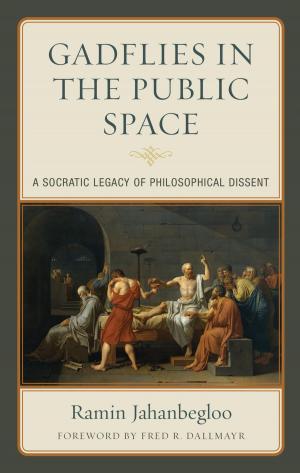The Rhetoric of Intention in Human Affairs
Nonfiction, Reference & Language, Language Arts, Public Speaking, Rhetoric, Communication, Linguistics| Author: | Gary C. Woodward | ISBN: | 9780739179055 |
| Publisher: | Lexington Books | Publication: | September 12, 2013 |
| Imprint: | Lexington Books | Language: | English |
| Author: | Gary C. Woodward |
| ISBN: | 9780739179055 |
| Publisher: | Lexington Books |
| Publication: | September 12, 2013 |
| Imprint: | Lexington Books |
| Language: | English |
The Rhetoric of Intention in Human Affairs is an insightful account of the rhetorical and psychological habits we exhibit when we must explain the reasons others act. The assumption that we can know what motivates another person is fed by more hope than certainty, and yet it is evidence of a very human impulse. Beginning with a clear template for defining various tiers of motives-talk, this innovative and accessible study moves through a series of chapters exploring the unique demands imposed by different circumstances. These sections cut a wide swath of analysis across a diverse range of human actors including: conspiracy theorists who find the designs of coordinated agents behind random events, theater performers creating “backstories” for their characters, journalists grasping to name the motives of newsmakers, prosecutors who must establish another’s intent in order to prove a criminal act, and the devout who grapple with what divine intervention can mean in a cruel world. Readers will recognize themselves in these pages, gaining an appreciation for the rhetorical analysis of human behavior.
The Rhetoric of Intention in Human Affairs is an insightful account of the rhetorical and psychological habits we exhibit when we must explain the reasons others act. The assumption that we can know what motivates another person is fed by more hope than certainty, and yet it is evidence of a very human impulse. Beginning with a clear template for defining various tiers of motives-talk, this innovative and accessible study moves through a series of chapters exploring the unique demands imposed by different circumstances. These sections cut a wide swath of analysis across a diverse range of human actors including: conspiracy theorists who find the designs of coordinated agents behind random events, theater performers creating “backstories” for their characters, journalists grasping to name the motives of newsmakers, prosecutors who must establish another’s intent in order to prove a criminal act, and the devout who grapple with what divine intervention can mean in a cruel world. Readers will recognize themselves in these pages, gaining an appreciation for the rhetorical analysis of human behavior.















